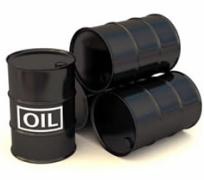 File Photo
File Photo
Oil revenue to Ghana has so far exceeded expectation marginally this year despite the price fluctuations of crude oil on the world market.
The Finance Ministry in its latest fiscal data report has reported that the country earned GH¢1 billion for the first seven months of the year, which is just GH?8.5 million more than what was projected for the period.
The benchmark revenue- which is the revenue that the government expects from oil operations- for the period also inched up slightly by GH¢38.9 million to GH¢685.49 million.
As a result, the Annual Budget Funding Amount (ABFA) planned for the period was boosted by GH¢104 million above the GH¢580.6 million that the government had estimated.
The petroleum revenue receipt so far is encouraging to government’s finances as it bids to close the cash fiscal deficit gap.
Global rating agency, Fitch, has forecasted that the government’s cash deficit for the year will be 7.8 per cent of GDP, which is slightly higher than the authorities' target of 7.3%, but lower than the 10.2% deficit recorded in 2014.
But the government is confident its cash deficit target will be met, which according to the Finance Ministry was pegged against an expectation that oil revenue will continue to over-perform, reflecting slightly higher than programmed oil prices in the second half of the year (about US$58 a barrel).
Currently, crude oil is trading at about US$48 a barrel.
The Ministry in March announced that it had cut its projection for oil revenue from an initial figure of US$4.2billion as stated in the budget to about US$1.5billion, on account of a lower than expected crude oil price.
While government had relied on US$99 per barrel of crude to make its budget, the price fell below the US$50 mark -- causing government to slash its spending by GH¢1.5billion in a paper presented to Parliament in March this year.
In presenting a supplementary budget to Parliament last July, Mr. Seth Terkper said government had projected the price of crude oil to be US$57 per barrel, but recent trends on the market has seen the price slide to further.
The government is about to start preparing the 2016 budget, which will aim for an overall fiscal deficit of about 5.8 percent of GDP.
As such, it is expected that the government will continue with its policy of expenditure restraint, in particular containing the wage bill, maintaining zero subsidies and strengthening expenditure control, while ensuring no accumulation of arrears and also broaden the tax base.